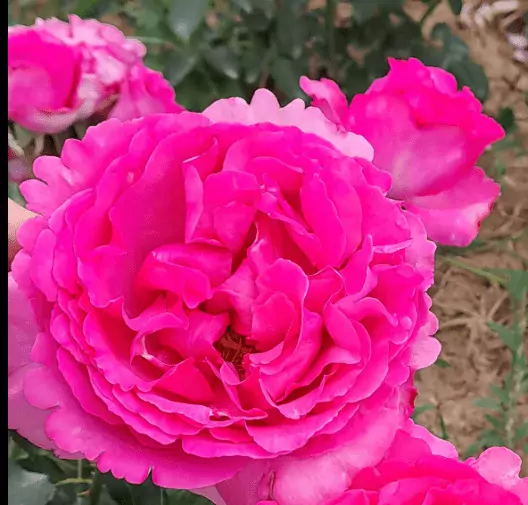Yves Piaget rose

Yves Piaget Rose: A Captivating Marvel of Nature
The Yves Piaget Rose reigns supreme in the realm of roses, where beauty knows no bounds. This rose, also known as MEIvildo, Queen Adelaide, or Royal Brompton Rose, inspired the renowned Romantic Meilland series. Initially categorized as a Hybrid Tea grew, it quickly became apparent that its peony-shaped blooms with wavy petals were entirely novel.
Key Characteristics Yves Piaget Rose:
- Color: Delicately pink at the edges, transitioning to rich pink at the center with irregular, serrated edges on wavy petals.
- Flower Size: Large, with blooms reaching 12-14 cm in diameter.
- Bush Size: Compact, upright, practically thornless, standing at 60-75 cm in height and 50 cm in width.
- Rose Type: Hybrid Tea.
- Grower: MEILLAND International.
- Disease Resistance: Strong resistance to both powdery mildew and black spots.
- Climate Zone: USDA Zone 6.
The allure of Yves Piaget lies in its thick, round blossoms, which exude an intoxicating fragrance. These splendid flowers appear singularly or in clusters of 2-3 on long, robust stems, making them ideal for cutting. Despite its relatively modest height, the bush is upright and well-branched, featuring minimal thorns. This rose welcomes warmth, fertilization, and consistent watering with open arms.
Fragrance
One of this rose’s most significant accolades is its captivating fragrance. The large, densely petaled blossoms, with their serrated edges, boast a beautiful lilac-pink hue. There is simply no other rose quite like it. Yves Piaget is a one-of-a-kind variety.
Cultivation and Care
Yves Piaget roses thrive in full sun but can tolerate partial shade, though full sun will intensify the richness of their color. These roses detest drafts, so choosing a sheltered spot to shield them from strong winds is imperative. To maximize their growth and bloom potential, avoid planting near large shrubs or tall trees, which can compete for water, nutrients, and light, ultimately casting unwanted shade.
When planting, dig a hole at least half a meter deep, layering the bottom with drainage material, followed by organic fertilizer and topsoil. A well-balanced soil mix containing garden soil, compost, and sand provides the perfect foundation. This rose thrives in fertile, well-draining, and slightly acidic soil.
Yves Piaget roses’ exquisite beauty and captivating fragrance offer a timeless charm. Placing them in your garden will infuse your space with nostalgia and a touch of classical elegance. Remember that with some care and attention, these blooms will grace your garden with their resplendent presence year after year.
Awards and Accolades
- Gold Medal and Cup for fragrance at the Bagatelle Rose Trials (Belgium) in 1982.
- Gold Medal and “Golden Rose” award, City Prize, and Cup for fragrance at the Geneva Rose Trials (Switzerland) in 1982.
- Silver Medal at the Saverne Rose Trials (France) in 1982.
- Gold Medal and Cup for fragrance at the Bagatelle Rose Trials (Paris, France) in 1992.
- Decorative Award from the American Rose Society AARS (California) in 2010.
